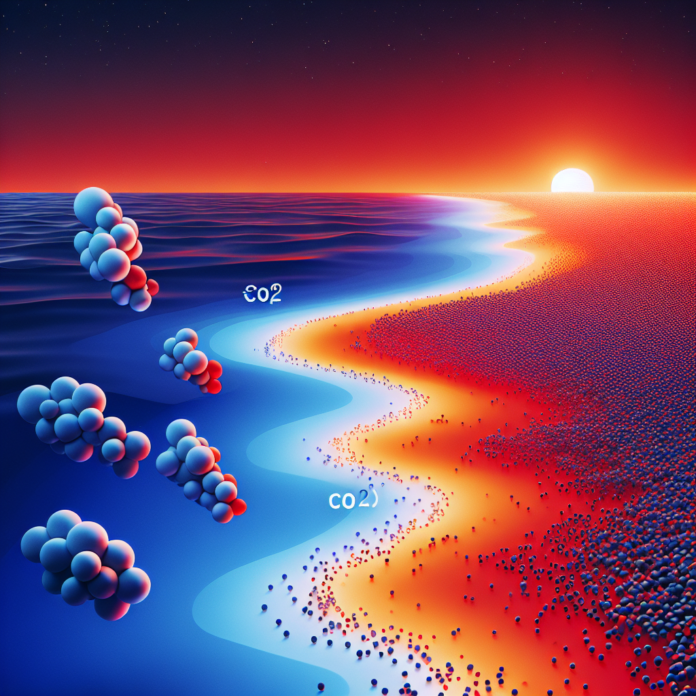Extreme Heat Threatens Ocean’s CO2 Absorption Capacity
Extreme Heat May Rapidly Sap the Ocean’s Ability to Absorb CO2
The rising global temperatures, intensified by climate change, pose a significant threat to the ocean’s capacity to absorb carbon dioxide (CO2). As the planet warms, ocean waters become less efficient at sequestering this greenhouse gas, which plays a critical role in regulating our climate.
The Mechanism Behind CO2 Absorption
The oceans act as a major carbon sink, absorbing approximately 25% of the CO2 emitted by human activities. This process occurs primarily through the interaction of the ocean’s surface waters with the atmosphere. When CO2 is dissolved in seawater, it undergoes a series of chemical reactions, ultimately forming carbonic acid. However, as temperatures rise, the solubility of CO2 in seawater decreases, meaning that warmer waters are less capable of holding CO2.
Consequences of Reduced CO2 Absorption
A decline in the ocean’s ability to absorb CO2 could lead to increased atmospheric concentrations of this greenhouse gas, exacerbating climate change. This feedback loop could result in more extreme weather events, rising sea levels, and detrimental effects on marine ecosystems. Coral reefs, in particular, are highly sensitive to temperature changes and ocean acidification, leading to bleaching events and loss of biodiversity.
Impact on Marine Life
The repercussions of reduced CO2 absorption extend beyond climate regulation. Ocean acidification, a direct result of excess CO2 dissolving in seawater, poses a significant threat to marine organisms, especially those with calcium carbonate structures, such as shellfish and corals. As the pH of ocean waters decreases, these organisms struggle to maintain their shells and skeletons, leading to population declines and disruptions in marine food webs.
Global Responses and Mitigation Strategies
Addressing the challenges posed by extreme heat and its impact on oceanic CO2 absorption requires a multifaceted approach. Global initiatives aimed at reducing greenhouse gas emissions, such as the Paris Agreement, are essential. Additionally, investing in renewable energy sources, enhancing energy efficiency, and promoting sustainable land-use practices can help mitigate the effects of climate change.
Furthermore, research into ocean health and carbon capture technologies can provide valuable insights. Innovative solutions, such as ocean alkalinity enhancement, aim to increase the ocean’s capacity to absorb CO2 while also combating ocean acidification.
Conclusion
The interplay between extreme heat and the ocean’s ability to absorb CO2 is a critical area of study in the context of climate change. As global temperatures continue to rise, understanding and mitigating the impacts on oceanic carbon sequestration will be vital for preserving marine ecosystems and ensuring a stable climate for future generations. Immediate action is necessary to combat climate change and protect the vital functions that oceans provide.


